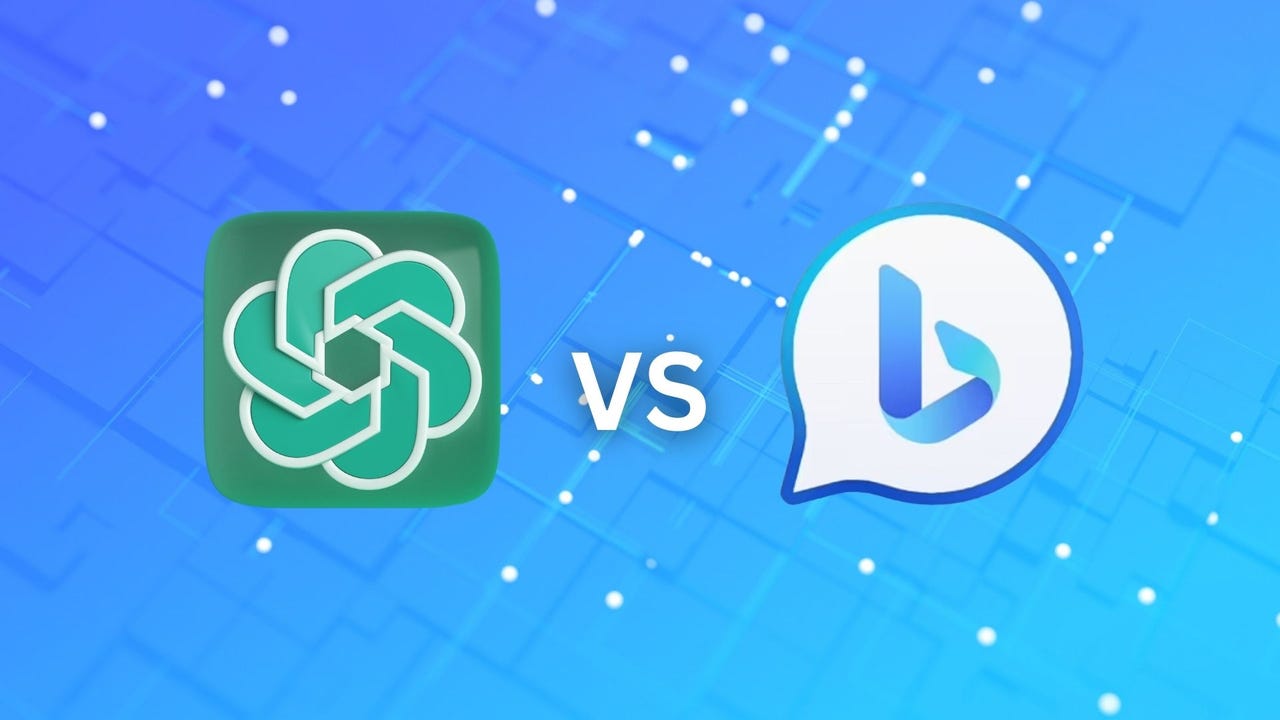'ZDNET Recommends': What exactly does it mean?
ZDNET's recommendations are based on many hours of testing, research, and comparison shopping. We gather data from the best available sources, including vendor and retailer listings as well as other relevant and independent reviews sites. And we pore over customer reviews to find out what matters to real people who already own and use the products and services we’re assessing.
When you click through from our site to a retailer and buy a product or service, we may earn affiliate commissions. This helps support our work, but does not affect what we cover or how, and it does not affect the price you pay. Neither ZDNET nor the author are compensated for these independent reviews. Indeed, we follow strict guidelines that ensure our editorial content is never influenced by advertisers.
ZDNET's editorial team writes on behalf of you, our reader. Our goal is to deliver the most accurate information and the most knowledgeable advice possible in order to help you make smarter buying decisions on tech gear and a wide array of products and services. Our editors thoroughly review and fact-check every article to ensure that our content meets the highest standards. If we have made an error or published misleading information, we will correct or clarify the article. If you see inaccuracies in our content, please report the mistake via this form.
ChatGPT vs. Bing AI: Which AI chatbot is better for you?

Since ChatGPT launched in November, AI chatbots have been the talk of the internet. ChatGPT's abilities to generate text, talk conversationally, write code and do so much more caused a huge demand for the chatbot.
Naturally, seeing ChatGPT's massive success, other companies rushed to compete in the generative AI space.
Also: The best AI chatbots of 2023: ChatGPT and alternatives
In February, Microsoft announced its integration of AI to its Bing search engine. The AI-powered Bing has some major differences from ChatGPT, with the biggest difference being access to the entirety of the internet.
So which chatbot should you reach for your AI needs? We compared ChatGPT (the free version) and Bing Chat to help you make your decision easier.
You should use ChatGPT if...
1. You want to experience the hype for yourself
ChatGPT has been the leading AI chatbot since its launch and has served as the blueprint for the many AI chatbot spinoffs that have entered the space since. The hype is well deserved. ChatGPT is a very capable chatbot able to provide insight and assistance on a wide variety of topics including technical spaces such as writing and coding.
Also: ChatGPT is the most sought out tech skill in the workforce, says learning platform
ChatGPT is currently free to use and open to everyone. Therefore, if you are curious about how an AI chatbot could benefit you, you might as well try the one that started the boom and see if you think it lives up to the hype.
2. You want clarity on topics or events from before 2021
ChatGPT was trained on the entirety of the web before 2021. Therefore, if you have any questions about topics or events that occurred before 2021, ChatGPT will be able to provide you a thorough, conversational response that covers all of your question's bases.
Also: How to make ChatGPT provide sources and citations
Your input prompts don't have to be limited to standard search engine entries, but can include specific math and coding prompts as well.
This ChatGPT ability can be specially useful when you need clarity on an established topic that you are learning or researching since ChatGPT can thoroughly explain a topic the way a tutor would. The best part is that unlike a tutor, ChatGPT is available at all times (except when it is at capacity) and is able to answer as many questions as you'd like.
If you want to use ChatGPT for current event prompts, there is a work around.
At Microsoft Build 2023, Microsoft announced that Bing would be coming to ChatGPT as its default search engine. This integration grants ChatGPT internet access and, therefore, access to current events. It also gives the chatbot the ability to provide citations for all of its answers.
This feature, however, is currently limited to ChatGPT Plus subscribers.
3. You want long, in-depth responses
In our testing experience, ChatGPT provides the most in-depth responses compared to its competing chatbots, including Bing's chatbot.
Also: How to use ChatGPT to write Excel formulas
For example, if you ask ChatGPT a loaded question such as "What is life?" the chatbot will provide you with several paragraphs explaining different aspects and interpretations of the concept.
When you plug the same question into Bing's chatbot, you only get a three sentence response:
Life is the aspect of existence that processes, acts, reacts, evaluates, and evolves through growth (reproduction and metabolism). The crucial difference between life and non-life (or non-living things) is that life uses energy for physical and conscious development. Is there anything specific you would like to know about life?
Also: 5 ways to use chatbots to make your life easier
In addition to answering questions more thoroughly than other chatbots, ChatGPT does not have a query cap, unlike Bing Chat, putting no limits on your curiosity. No matter how many follow up questions you have, ChatGPT will answer them all with an in-depth response.
You should use Bing's AI powered search if...
1. You want information on current events for free
If you have any questions relating to current events, Bing AI is your go-to chatbot.
In order to generate an answer, Bing AI indexes the entirety of the web. As a result, the chatbot has access to the latest events, stories and research available at the very moment you asked your question.
Also: What is the new Bing? Here's what you need to know
Like ChatGPT, Bing AI will provide human-like, conversational responses to answer your question. This skill can be especially helpful in answering questions about news going on right now. We have all heard something on the news before that left us with follow-up questions. That is where Bing AI can really shine.
Bing is also being used to power ChatGPT and give it access to current events. However, access to this feature currently requires a paid subscription to ChatGPT Plus. For that reason, Bing's AI powered search remains as the best chatbot to get information on current events.
2. You want to confirm your sources
A big concern with using ChatGPT is that you can't confirm the accuracy of its responses since it does not provide sources for its responses.
OpenAI has admitted in the past that ChatGPT is prone to hallucinations and inaccurate responses as, after all, it is an AI model capable of making mistakes. Bing AI attempts to solve that issue by providing sources.
Also: How to make ChatGPT provide sources and citations
When you ask a question in Bing AI, it will generate a response with footnotes that lead you back to the exact source it got its response from. As soon as you click the footnote, you will be brought directly to the web article in another tab.
This capability is especially useful when using the chatbot for tasks where accuracy is crucial such as a workplace or academic deliverable, research, or just a casual conversation to know what you are talking about.
Also: How to use Bing Image Creator (and why it's better than DALL-E 2)
Asking Bing AI math-related questions will also present you with complex mathematical expressions and their markups. These equation visuals serve as sources for math as they clearly demonstrate the origin of the answer.
The citations feature is also now available on ChatGPT through the new Bing integration. However, a paid ChatGPT Plus subscription is required.
3. You want free access to OpenAI's latest model -- GPT-4
GPT-4 is the newest version of OpenAI's language model systems, more advanced and reliable than GPT-3.5, the large language model (LLM) ChatGPT runs on.
Also: Bard AI says urgent action should be taken to limit Google's power
There are only two ways to access GPT-4's text-input features: ChatGPT Plus which has a cost of $20/month and the new Bing which is free.
Therefore if you want to see what OpenAI's latest model is about without paying for it, Bing AI is your only option. The day OpenAI announced its latest language model, Microsoft revealed that, since its launch, Bing AI has been running on GPT-4.
On May 4, Microsoft announced some other major AI upgrades that are coming to both Bing and Edge. These features are more advanced than those of ChatGPT right now. Unlike ChatGPT, access to Bing's latest features won't involve a premium subscription.
Also: How to write better ChatGPT prompts
In fact, Microsoft shared that it is not interested in adding a subscription tier to its platform anytime soon.
"Our goal is always for all these features, to be able to get to worldwide coverage, we want to make sure that thing is accessible to any market along the way," Dena Saunders, Partner General Manager, Bing, told ZDNET.
Alternatives to consider
Open to other AI chatbot prospects? There are plenty of other generative AI tools on the market that offer different strengths. Here are a few others you can try:
Best alternative
Google Bard
The search engine giant's own AI chatbot has an ever-expanding feature set to get work done.
Best alternative
Chatsonic by Writesonic
GPT-4 powered chatbot that includes different personalities for responses.
Best alternative
You Chat
Like ChatGPT, You Chat provides you with answers to search queries in a conversational manner.
